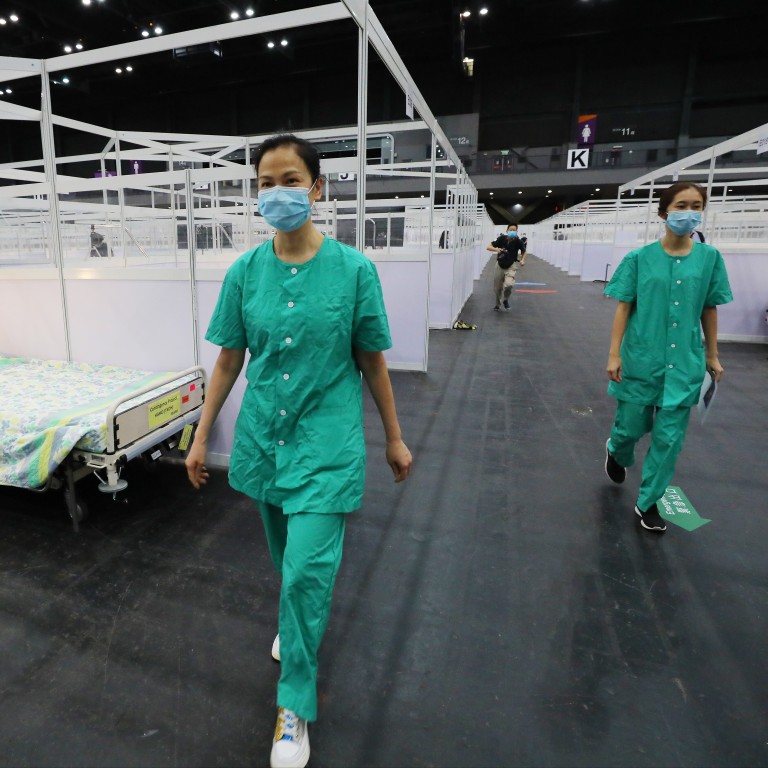
Hong Kong third wave: free Covid-19 tests for residents as mainland Chinese clinical teams head to city
- Sixty lab technicians from public hospitals in Guangdong province will be picked for Hong Kong stint
- Separate team of experts expected to soon begin work at temporary hospital at expo site
Four health advisers, however, suggested at a government meeting on Saturday that testing should focus on high-risk groups, rather than across the city, which was not cost-effective without a lockdown, sources told the Post.
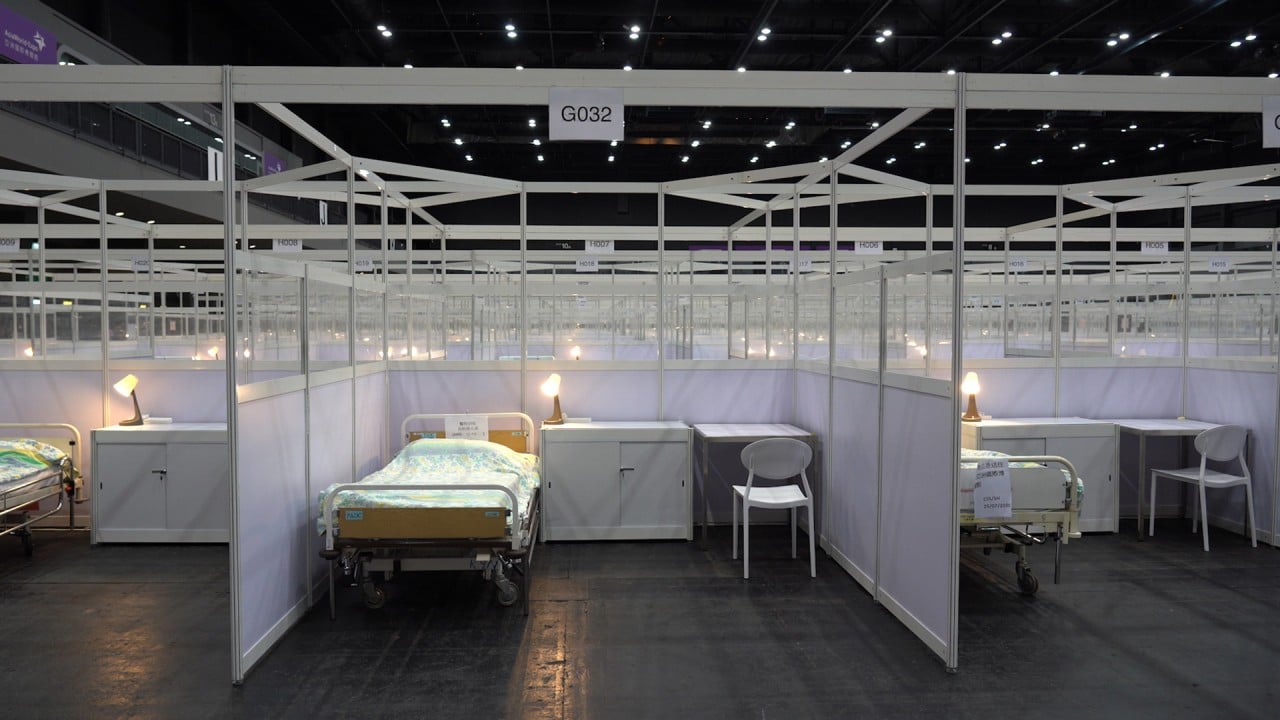
03:02
Hong Kong’s first makeshift Covid-19 hospital in operation amid third wave of coronavirus crisis
China’s National Health Commission, which revealed details of the testing offer in a statement, also said another team of six experts from Wuhan, where the first Covid-19 cases were reported, would help Hong Kong authorities develop a temporary “cabin hospital”, as the city’s medical facilities were stretched to the limit.
CCTV reported on Saturday that the central government would “do its utmost” to help Hong Kong battle the outbreak.
Citing unidentified sources, the broadcaster said Covid-19 nucleic tests would be free for all residents and the central government would shoulder the fees.
The test teams would remain in Hong Kong until the epidemic was under control and transmission chains cut off, the report said.
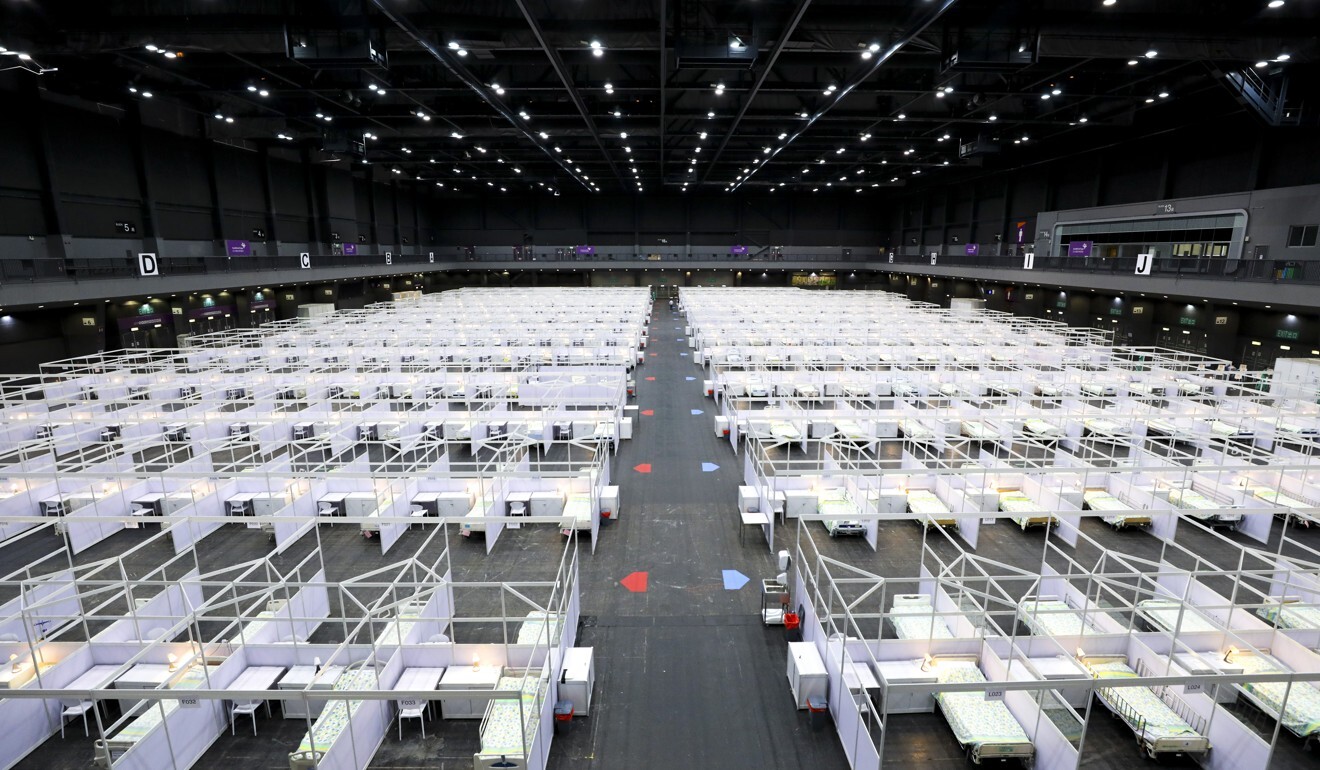
The city also reported its highest daily death toll. Six elderly patients confirmed with Covid-19 and another who tested preliminary positive were the latest fatalities. They all had chronic illnesses and three were care home residents. The official infection tally stood at 3,396 with 33 related deaths.
The city’s leader, Chief Executive Carrie Lam Cheng Yuet-ngor, said details of the mass testing had not been decided yet, but the aim would be to ramp up capacity.
“It is easy to launch a measure. But whether we have sufficient supporting facilities to ensure this measure achieves its intended outcome – this is something we are learning,” she told a radio programme on Saturday morning.
The commission’s statement said about 60 clinical laboratory technicians from more than 20 public hospitals in Guangdong province would be selected for the Hong Kong stint, and the seven arriving on Sunday would help with lab work.
A source said the group due to arrive on Sunday would offer expert advice to BGI, one of the recognised testing institutions in Hong Kong. BGI, originally from the mainland, also operates Sunrise Diagnostic Centre, which was involved in conducting mass testing for high-risk groups including taxi drivers and care home workers.
Hong Kong set to extend social-distancing measures after Covid-19 spike
A member of the province’s health commission who was a leader of the Guangdong medical team that provided support for three months to hospitals in Wuhan would head the team.
It was believed the team leader was Yu Dewen, who commanded the Guangdong medical squad that was among the first group of medical personnel dispatched to Wuhan to treat Covid-19 patients.
Health experts advising the government on the pandemic cast doubts on universal screening in Hong Kong.
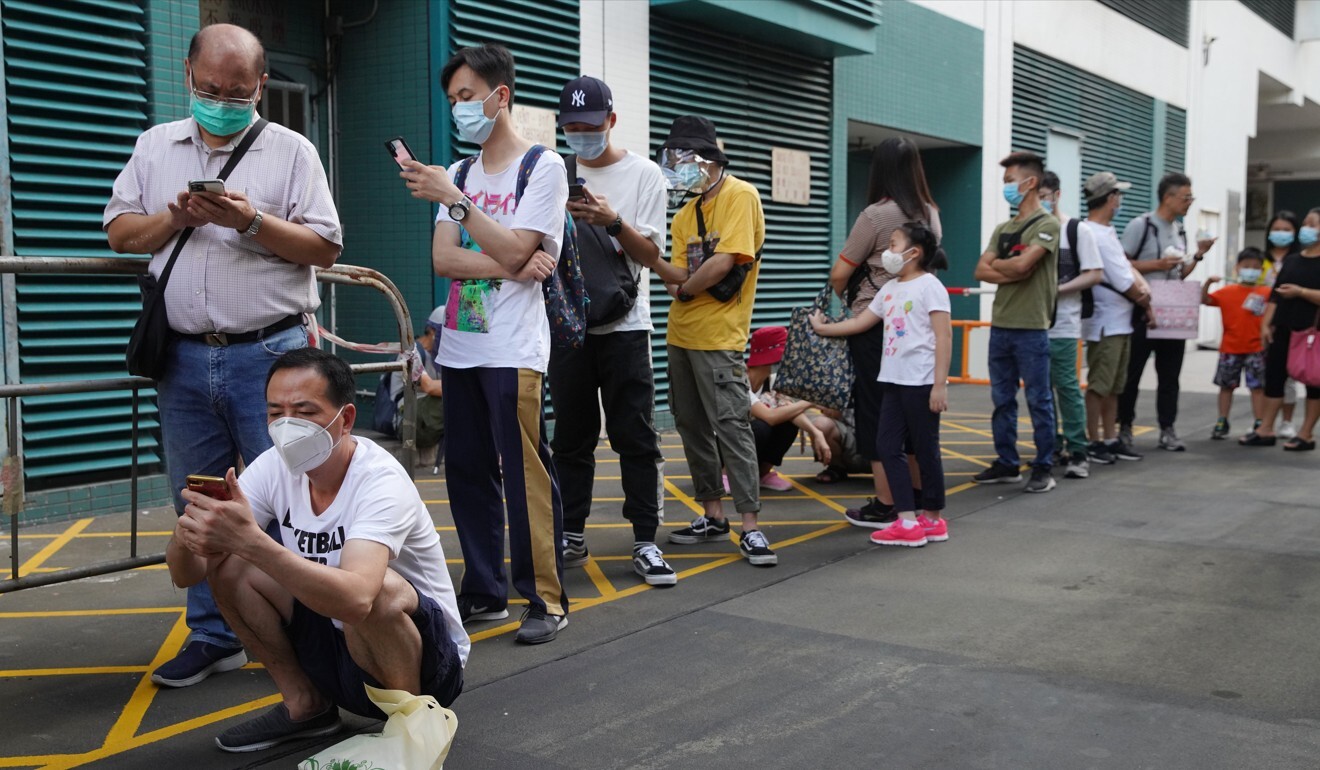
“Citywide testing can only show the health status of a citizen at one point, so without lockdown measures like on the mainland, people can still contract the virus right away after testing,” said an insider who attended the expert meeting with the government on Saturday.
The government should instead make use of the mainland help to test high-risk groups, such as residents in Tsz Wan Shan or other clusters suggested by the Department of Health, the source said. Whether the government would consider the experts’ suggestions was not known.
Desperate Hong Kong families ask charities for food as Covid-19 strikes hard
Professor Keiji Fukuda, who heads the School of Public Health at the University of Hong Kong, said he did not see a need to test the entire city. “While it would pick up some more cases, it would require a very large number of people [to do the testing],” he said.
Fukuda said the current focus on higher-risk groups was “a very reasonable approach”.
He said some population-wide measures, such as wearing masks, handwashing and social distancing, together with specific measures for patients and close contacts, would cut transmission if they were done well.
The Post has contacted the Food and Health Bureau for information on how the large-scale testing would be done.
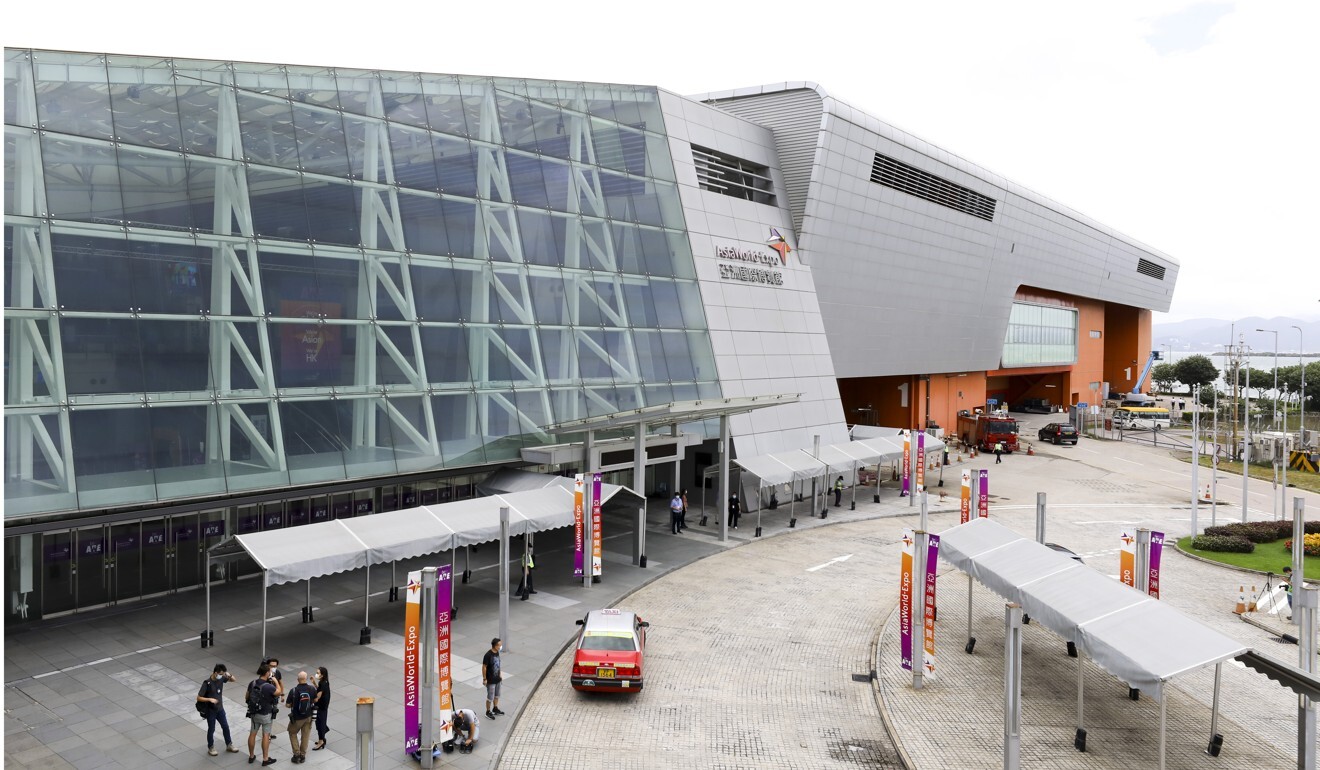
Dr Chuang Shuk-kwan, head of the Centre for Health Protection’s communicable disease branch, said that while more tests would help find hidden virus carriers, the authorities would need to consider factors such as logistics and follow-up action for those who tested positive.
Hospital Authority chief Henry Fan Hung-ling told CCTV the central government’s plans to send personnel to Hong Kong was “very good news” as there was not enough manpower because authorities had been working 24 hours a day to conduct thousands of tests.
Kwok Ka-ki, a Civic Party lawmaker and doctor, said residents should be given the right to refuse to take a test, as some were concerned about their genetic information being collected by mainland authorities.
Ronny Tong Ka-wah, an adviser in Lam’s cabinet, said he only learned details of the mass testing plan in the news, but he dismissed privacy concerns as everyone who came to Hong Kong had to abide by local laws, including regulations on personal data.
The six-strong team from Wuhan were expected to provide technical support for expanding facilities at AsiaWorld-Expo.
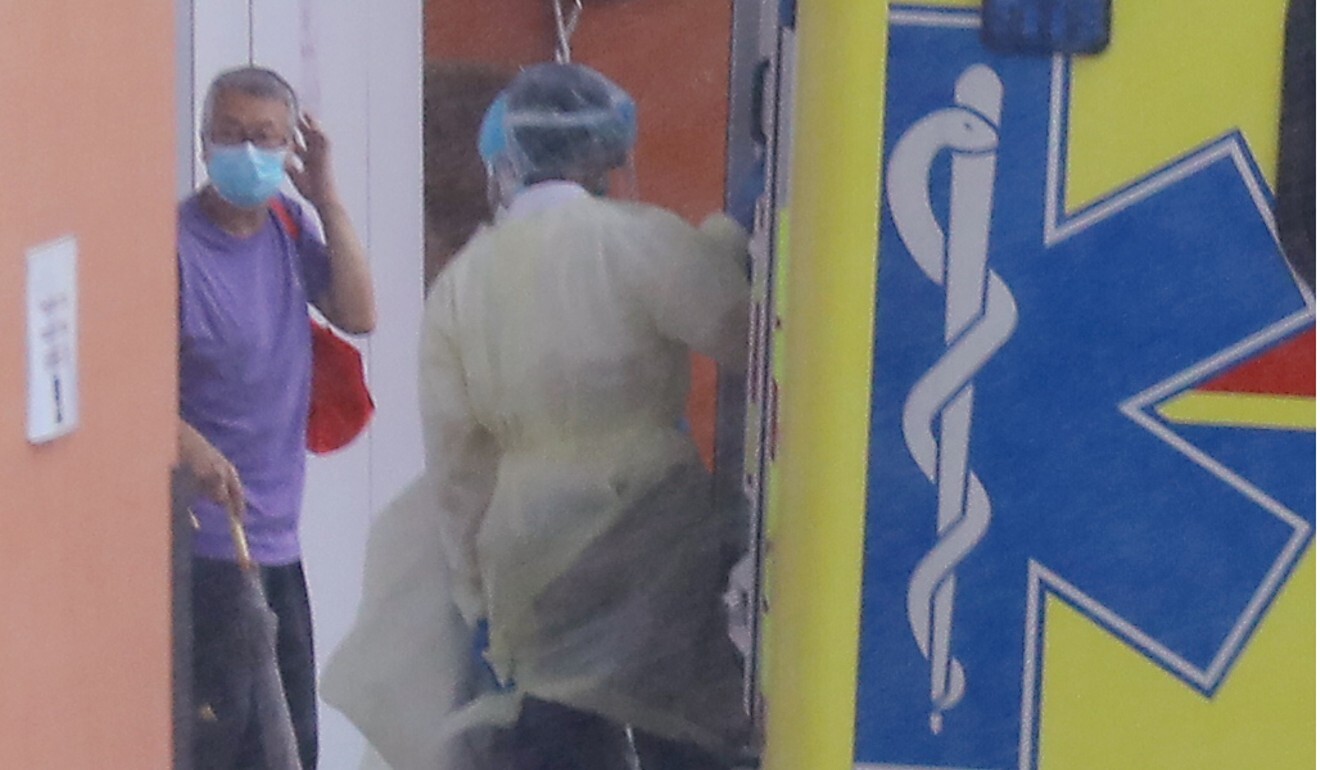
The team would include at least one hospital chief, an infection control specialist and a building and design expert.
Dr Wan Jun, vice-president of Renmin Hospital of Wuhan University, told CCTV in another report that he would be among the team to offer guidance.
Wan ran Wuchang Makeshift Hospital, which was converted from a stadium to take 700 beds, and treated 1,100 patients between February 5 and March 10.
“[We will] build and manage the makeshift hospital together with colleagues in Hong Kong so the hospital can be a life oasis for Covid-19 patients,” he said.
Lam told the radio programme that the central government would provide hel p in turning the expo site into a temporary hospital, while another makeshift facility might also be constructed elsewhere.
Meanwhile, the new medical facilities in Hall 1 of AsiaWorld-Expo began taking in younger, healthier patients aged 18 to 60.
Dr Larry Lee Lap-yip, one of the officials in charge, said 20 to 30 people were admitted on Saturday and that patients would be cared for by 14 doctors and 50 nurses.
Lee said the authority was also looking to further open up at least another 400 beds at exhibition Hall 2 although a timeline was not yet available.
Additional reporting by Kanis Leung




